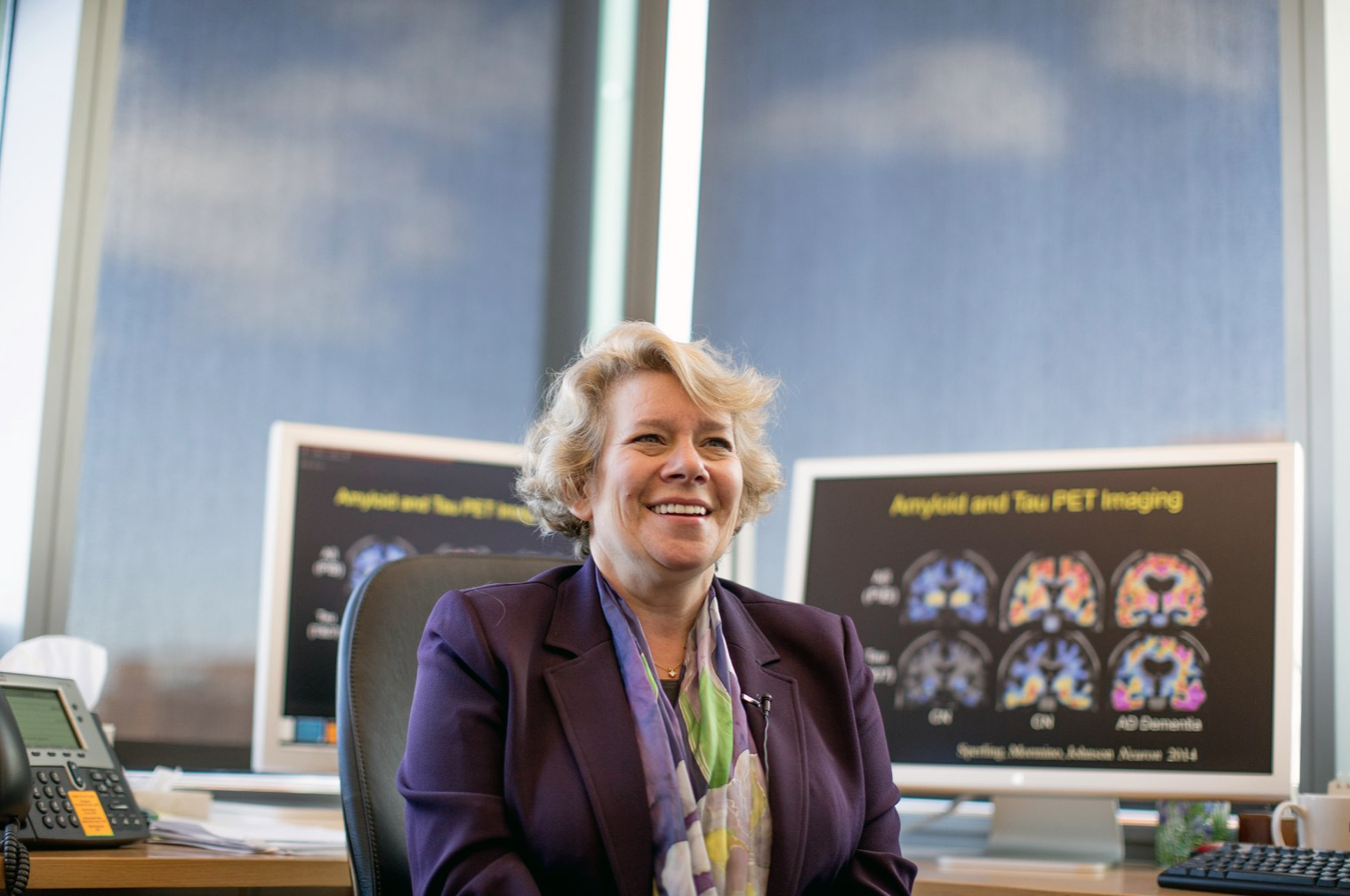Thanks in large part to research conducted by BWH scientists over the past 30 years, we now know that brain abnormalities caused by Alzheimer’s disease begin one—or even two—decades before cognitive symptoms arise. By identifying individuals who experience these early brain changes, we hope to intervene and interrupt the pathophysiologic process in the brain to ultimately prevent the clinical symptoms of Alzheimer’s disease from ever surfacing.
Dr. Reisa Sperling’s seminal work has culminated in the first-ever prevention trial in older adults (ages 65-85) at risk of Alzheimer’s. Designed and directed by Dr. Sperling, this landmark clinical trial—called the Anti-Amyloid Treatment in Asymptomatic Alzheimer’s Disease (A4) Study—is investigating whether or not a drug can reduce amyloid plaque buildup in the brain and stop disease progression. With 1,000 people from over 60 sites worldwide participating, the study uses a treatment based on extensive research conducted by the team in the Ann Romney Center. If the A4 Study proves successful, it will fundamentally shift the paradigm for treating Alzheimer’s disease, providing the first preventive therapy for millions of older adults at high risk for cognitive decline.
Beyond the A4 Study, the clinical research team is currently designing and planning additional prevention studies, including the Ante-Amyloid Prevention of Alzheimer’s Disease (or A3) trial. The A3 trial will focus on even younger people (potentially as young as 50) who are at high risk for Alzheimer’s but do not yet have the symptoms or hallmark brain pathology associated with the disease.
In addition, Dr. Sperling and her team are conducting cutting-edge research centered around even earlier diagnosis of Alzheimer’s, including new types of brain scans, increasingly sensitive and technology-based cognitive tests, and observational studies to learn more about the underlying disease processes. Importantly, the team also offers access to many other clinical trials and research studies for patients currently living with Alzheimer’s.


